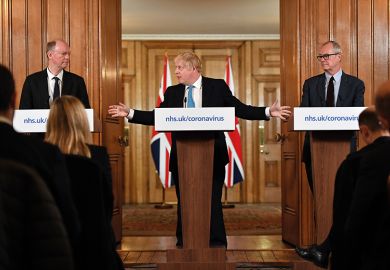Academics have been brought in to directly scrutinise Dutch legislation, chiding the government for vague policy goals and aiming to offer lawmakers evidence-based alternative policies.
While lawmakers the world over routinely get advice from academics, the Dutch pilot scheme, which aims to become a “gold standard” for scientific scrutiny, goes a step further and asks researchers to directly analyse new legislation.
“What is very new here is that with this approach, you get into the heart of the policymaking process,” said Pieter Duisenberg, president of the Association of Universities in the Netherlands (VSNU), one of those behind the new scheme and a former centre-right lawmaker himself.
The idea is that committees of the Dutch parliament will be able to call in two academics to scrutinise government proposals. They will judge whether policy aims are specific and how success should be measured and can suggest alternative, science-backed ways of achieving the same objectives.
These external researchers will be picked by parliamentary research assistants with the aid of the VSNU and other scholarly bodies – meaning politicians will not be able to choose the academics themselves.
So far, in a pilot running this year, university academics have analysed three new pieces of legislation on issues ranging from citizenship education to outlawing anti-democratic criminal organisations. Dutch lawmakers are now mulling whether to adopt the process permanently.
The aim is to get academic scrutiny into the “DNA” of the legislative process, said Mr Duisenberg. Scientific fact sheets and expert hearings for lawmakers will remain part of the process, he added, “but this is a big additional step”.
This push for more expert scrutiny has its roots in a 2018 law that demanded new legislation must spell out its goals and explain how it will effectively and efficiently achieve them.
But some lawmakers say this has not been properly followed – meaning stricter academic oversight is now necessary.
During the pilot this year, it was a “common complaint” from academics called in to evaluate legislation that the government was “too vague” in its aims, said Joost Sneller, a liberal lawmaker helping to push the new system through.
For example, a proposed shake-up of citizenship education aims to increase “social cohesion”, he explained, but there was little detail about how this would work or how it would be measured.
There is “legitimate criticism” of the pilot in that it is “too New Public Management”, he admitted – that is, it assumes that “everything can be measured”.
But it has broad interest in the Dutch parliament, he said, except from parties on the far right and far left.
Both Mr Duisenberg and Mr Sneller said they were unaware of any other system of such close academic scrutiny of legislation in other countries.
The Dutch scheme, dubbed a “gold standard” of expert oversight by the VSNU, certainly goes further than the UK Parliament’s Parliamentary Office of Science and Technology, for example, which produces oral and written briefings on scientific topics, and organises events, but does not directly judge legislation.
There are some parallels with the United States, however, where lawmakers can request reviews of legislation from academic bodies including the national academies, explained Jason Blackstock, an associate professor at UCL, who has researched national science advice systems.
POSTSCRIPT:
Print headline: Trial lifts scrutiny to ‘gold standard’
Register to continue
Why register?
- Registration is free and only takes a moment
- Once registered, you can read 3 articles a month
- Sign up for our newsletter
Subscribe
Or subscribe for unlimited access to:
- Unlimited access to news, views, insights & reviews
- Digital editions
- Digital access to THE’s university and college rankings analysis
Already registered or a current subscriber?









